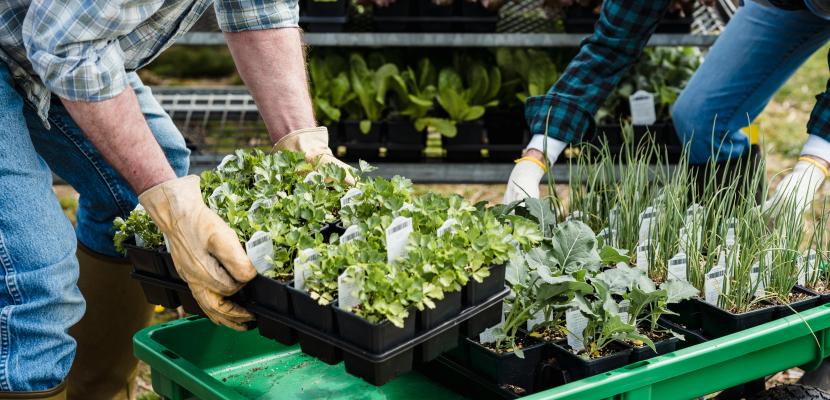
Gent en Garde - Sustainable Food Strategy of Ghent

About this good practice
Gent En Garde, the food strategy, came to be because of two problems:
1. The need for one single platform to unite all players working on/with food and the need for cooperation.
2. The need to bring sustainability to the level of food; both for producers and consumers.
Gent en Garde has an innovative governance model in which numerous stakeholders participate. The model is based on co-creation and participation.
The Food Council unites about 30 representatives from the agricultural sector, distribution and trade, restaurants, civil society and knowledge institutions. It provides advice to the city and is also actively involved in the development of the objectives and priorities. The council has its own budget to stimulate innovative projects that make the food system more sustainable.
So far, 27 projects have been funded by Gent en Garde. All of these projects contribute to the SDGs in different ways: B2B short chain distribution platform, guidance for consumers to grow their own vegetable garden, protein shift, sustainable and healthy school lunches, food waste reduction...
Gent en Garde has created new collaborations and new networks, it hosts different kinds of inspiration and networking events, it creates work forces with specific sustainability tasks and it decides whether this or that project is allocated funding or not.
Resources needed
4 fte – 5 people (staff costs)
€60,000 subsidies for companies and SMEs
€45,000 euros operational budget (communication, events, venue rental, outsourced research, etc.)
Evidence of success
To date, 27 projects have received a subsidy (amounts between 1,000 and 60,000 euros). These are all Ghent projects that specifically work on sustainability in the food sector. Because they all start from the same principle, it is a very high-quality network. The city therefore organizes partner days on which relevant themes are presented and on which the various actors enter into mutual collaborations.
Potential for learning or transfer
To start with, it is important that cities (and by extension also regions) recognize the importance of a food policy. This can start small, by bringing together everyone who is involved in nutrition in a certain way. It is not necessary to reinvent what already exists, so you can better work together in this.
Moreover, it is interesting to see the food strategy from a sustainability perspective (be careful that this effect is not absorbed by pure sustainability themes such as alternative energy sources, etc.).
When consumers think about sustainability, they do not immediately make the link with food. The impact of a sustainable food strategy is not (yet) clearly defined, which means that it is not yet clear to consumers, but also often to professionals, how they can contribute to sustainability in the field of nutrition. So there is still a lot of awareness work to be done.
